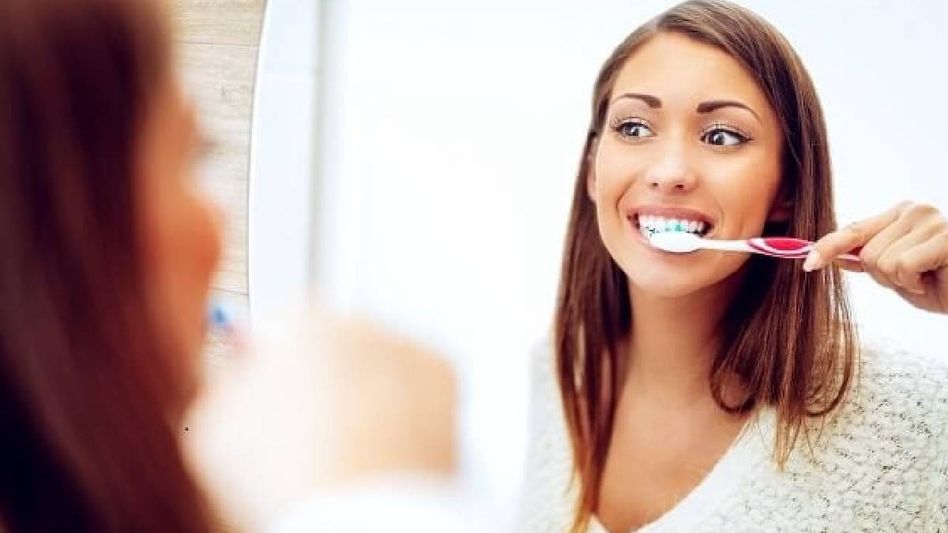Beware of over-brushing: The hidden risks to your teeth
Experts warn that excessive brushing, especially following the consumption of acidic foods and drinks, may result in enamel erosion and heightened tooth sensitivity.
 Beware of over-brushing: The hidden risks to your teeth
Beware of over-brushing: The hidden risks to your teethIn an age where dental hygiene is paramount, the importance of brushing teeth cannot be overstated. However, a rising concern among dental professionals is that over-brushing and improper techniques can lead to severe dental issues. Experts warn that excessive brushing, especially following the consumption of acidic foods and drinks, may result in enamel erosion and heightened tooth sensitivity.
Dr. P. Parthasarathi Reddy, Founder and Managing Director of FMS Dental Clinics in Hyderabad, explains that erosion is characterized by the loss of tooth enamel due to acid attacks, often from acidic foods, beverages, or acid reflux. “When the enamel erodes, it weakens the tooth structure, causing the teeth to become smaller, more sensitive, and prone to pain,” he notes. Acidic items like citrus fruits, sodas, and some fruit juices can significantly lower the mouth’s pH, particularly when it drops below the critical pH of 5.5, leading to the dissolution of calcium ions in the enamel and resulting in permanent damage.
Moreover, the simultaneous consumption of acidic foods, particularly while chewing, can accelerate this erosion, contributing to tooth sensitivity and discomfort. To mitigate these effects, Dr. Reddy advises waiting at least two hours after eating acidic foods before brushing. “Opt for foods with a pH close to 7, as they are better for your teeth and overall health,” he adds.
For those experiencing mild enamel erosion, dental professionals can often repair the damage using composite fillings. However, as erosion progresses, treatment complexity increases. “Moderate to severe cases may necessitate root canal treatments, inlays, crowns, or veneers,” warns Dr. Reddy.
Excessive brushing isn't the only concern; incorrect brushing techniques can also lead to abrasion, another form of dental damage. Dr. Reddy describes abrasion as resulting from brushing with a hard toothbrush using a horizontal motion, which can wear down enamel, particularly near the neck of the tooth. This type of damage often appears as saucer-shaped defects and can cause increased sensitivity.
To combat abrasion, it is recommended to use a medium or soft toothbrush with minimally abrasive toothpaste. Dr. Reddy advocates for techniques such as the “Bass” or “Modified Bass” methods, which are gentler on both teeth and gums. These techniques involve holding the toothbrush at a 45-degree angle, positioning the bristles slightly over the gum line, and brushing gently in a circular motion for 15 to 20 seconds on each tooth, before flicking the bristles towards the biting surface to remove plaque.
Preventing dental erosion and abrasion begins with lifestyle adjustments. Dr. Reddy encourages patients to minimize their intake of acidic foods and beverages and to consult a gastroenterologist if they frequently experience acid reflux. He underscores the significance of proper brushing techniques and suggests that those with partial dentures consider flexible options without metal clasps to reduce the risk of abrasion.
Copyright©2025 Living Media India Limited. For reprint rights: Syndications Today









